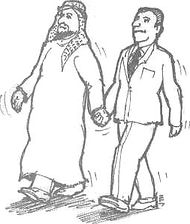
CULTURE & COMMUNICATION




CULTURE AND COMMUNICATION
Culture is a group which shapes a person's values and identity. Cultures identites stem from the following differences: race, gender, ethnicity, class, religion, country of origin, and geographic region.
Culture
Communication means connection between peoples or places, in particular.
The meansof sending or receiving information, such as telephone lines or computers.
From the day we were born, we communicate with our own particular languange, culture, rules, and norms. However different cultures may have different rules and norms. Understanding other's culture facilitates cross cultural communication.
Culture Communication Problem
VIDEO
Communication
According to Prosser (2012), Cross-cultural communication is normally thought of as communication that takes place between members of whole cultures in contact or between their cultural spokespersons or representatives.
Cross culture involves understanding culture differences and overcoming language problems.
Culture is improperly assumed to be the cause of miscommunication. There are 2 things that impact communication, they are the cultural differences in:
1. Body Position & Movements: Body position and movements differ among cultures and the differences can affect communication. Some of the movements have no meaning within culture, however some have a clear meanings.
a.
'OK' to a Westerner, 'money' to a Japanese, 'zero' to the French and ‘insulting’ to the Turks and Brazilians.
b.
'Two' to an American ,'Victory' to a German and 'Up yours' in Britain.
c.
If a Saudi man holds another man's hand in public it's a sign of mutual respect. But it will be a different story if it is happening in Australia, Texas or Liverpool, England.
2. Views and practices concerning various factors of human relationships (time, space, intimacy, odors, frankness, values, emotuons)
a. Time: Some cultures are really strict for time in term of punctuality, however some cultures don't.
b. Space: In some cultures, people want to be far apart, however in another cultures, they want to be close.
c. Odors: Some cultures view body odors as bad, and others view them as normal.
Cross Cultural Communication


